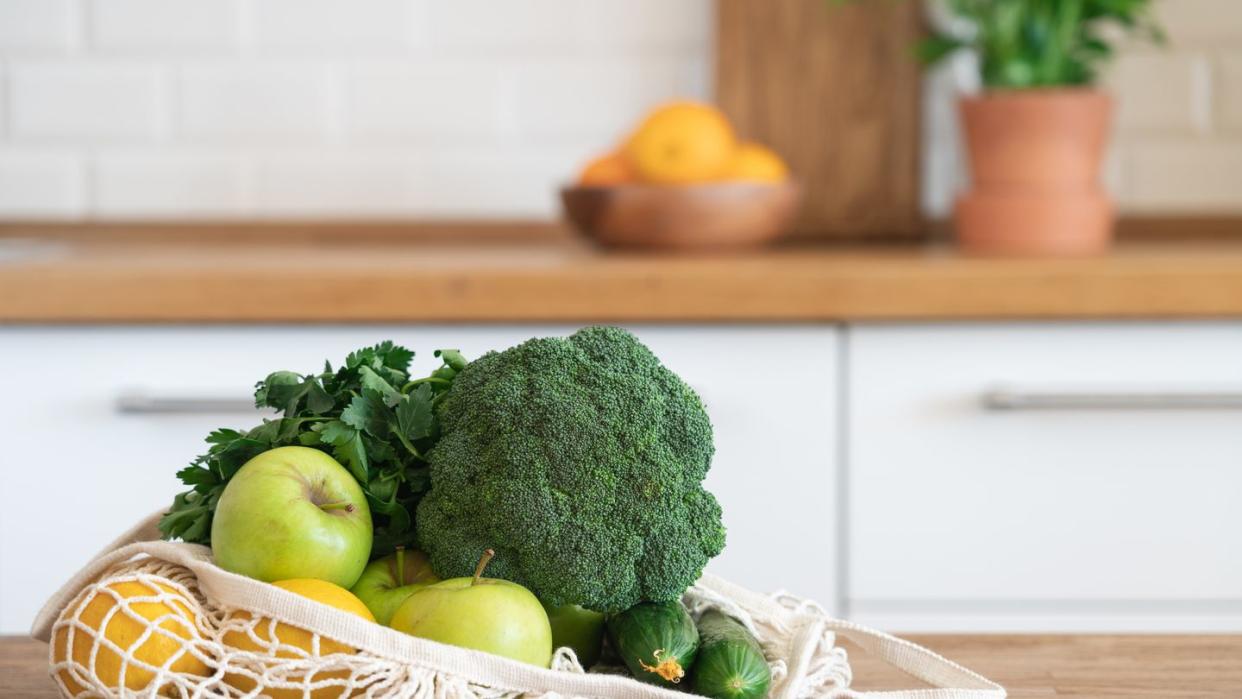Never Put These Fruits & Vegetables Near Each Other

From juicy strawberries and tomatoes in the summer to crisp apples in the fall, nothing beats fresh produce. Problem is, fruits and veggies spoil much faster than a can of beans or box of cereal. But with the proper storage, you can maximize the longevity of your produce and prevent your greens from getting slimy.
To minimize food waste and maximize your dollar—farmer’s markets are expensive—we’re covering everything you need to know about how to store your produce, with the help of Albert Nguyen, chef instructor of culinary arts at the Institute of Culinary Education.
Before we get into the specifics on how to store different items, there are a few things you should know. You’ve probably read articles about washing and cutting fruits and veggies as soon as you get home so that you’re more likely to actually eat them. But Nguyen recommends that you don't wash your produce until you're ready to use it.
“One of the biggest mistakes is washing produce and putting them back into the fridge wet,” said Nguyen. “Any excess moisture found or left on produce will be a vector for bacteria or mold to easily grow, thus allowing for the item to spoil quickly.”
Another mistake is stuffing all your produce into the crisper drawer. “Most fridges have two crispers. I usually use the lowest one to store more of the denser and tougher produce, whilst the top crisper is for softer, more delicate leafy items that need to be kept spacious and breathable.”
When it comes to deciding what produce to put together, a key factor is ethylene. Many fruits and veggies release ethylene gas as they ripen. This helps them ripen, but the gas will speed up the ripening of any produce that's placed near it, especially if it's sensitive to ethylene. In general, you'll want to store ethylene producers away from produce that is sensitive to it. Here are some to keep in mind, and more can be found on the UC San Diego Center for Community Health's website.
Ethylene Producers: Apples, bananas, avocados, kiwi, cantaloupe, peaches, pears, tomatoes, peppers
Ethylene Sensitive: Sweet potatoes, broccoli, apples, bananas, cucumbers, lemons, limes, onions, squash, lettuce, peaches, pears
Greens & Herbs
Leafy greens and herbs often come damp from being misted at the grocery store. Nguyen recommends storing them in a plastic bag with a paper towel to keep them dry. Make sure to keep the bag open to allow air to flow.
Potatoes, Onions, Garlic, & Hard Squashes
To avoid sprouting, store these items in a cool, dark, and dry space. Sweet potatoes, squash, and onions are sensitive to ethylene, so make sure to store them away from produce that releases a lot of ethylene.
Tomatoes
Nguyen recommends leaving tomatoes out with their stem faced down to avoid moisture loss. The only time you want to store them in the fridge, he added, is if you won't be using them within a week.
Bananas
Keep bananas away from sunlight and heat, which will cause them to ripen faster. If you're really trying to keep your bananas from turning brown, you can also wrap a bit of plastic wrap around the stems, which is where they release ethylene. Don't put them in the fridge unless they've already ripened.
You Might Also Like






